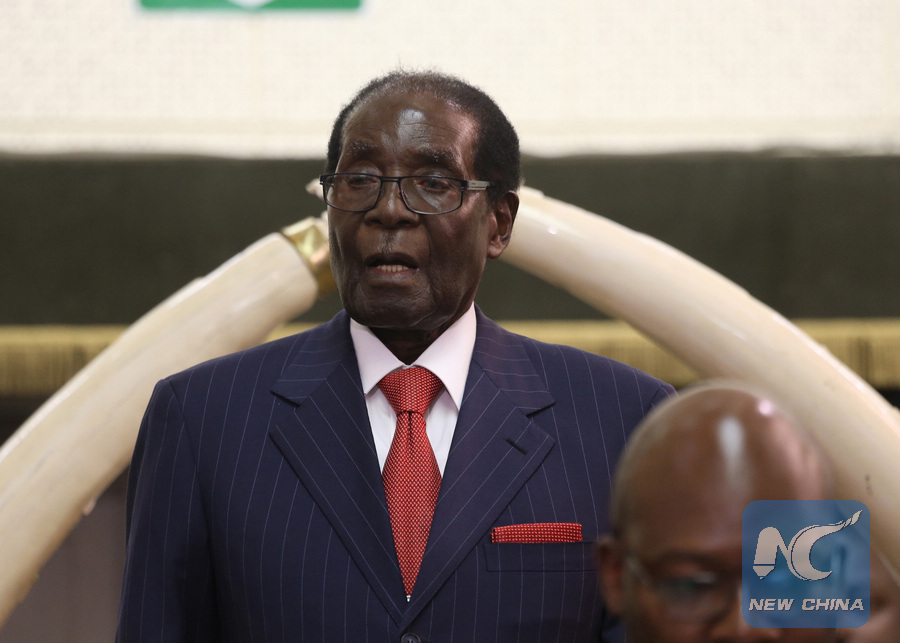
Zimbabwe President Robert Mugabe is making his State Of The Nation inside Parliament in Harare, Zimbabwe, December 6, 2016. (Xinhua/Stringer)
HARARE, May 1 (Xinhua) -- Zimbabwe joins the world in marking International Workers' Day on Monday, but some workers agree that despite getting a holiday, there is nothing much to celebrate on the day.
Low salaries, which in many cases are paid late as employers scrounge around to raise them, long queues at banks where no one is guaranteed of making a withdrawal because of the limited cash available, and the poor economy are militating against the workers' welfare.
Security officer Wellington Kuziwa told Xinhua that life was becoming tougher by the day as workers faced demoralizing situations at the workplace.
"I come to work early everyday because I want to fulfill the terms and conditions of my contract. But at the end of the month I endure delays in the payment of my salary and when it is paid I struggle to get cash from the bank," he said.
His sentiments were echoed by David Rangwani, a father of three who survives on the streets selling airtime top-up cards, loose cigarettes and snacks.
"There is nothing to celebrate on Workers' Day. I will still come to my station in the morning and assess if there are potential customers in town. It will be work as usual for me," he said.
He said workers were no longer as productive as they should be because they were always preoccupied with where they would get cash.
"Yes, it's true that plastic money is the way to go, but it is not always convenient because there are certain transactions which still require cash. I cannot buy tomatoes at a corner stall using a swipe card," he said.
Some restaurants in Harare demands that Point of Sale (POS) swiping can only be done for food costing at least 10 or 15 U.S. dollars.
One home owner said he had considered helping his gardener open a bank account but had later gone against the idea because of "problems" associated with the worker having a bank account.
"I have been waiting in queues to get cash for his wages, but now I realize that I am actually spending more time doing his business than mine.
"So when I considered helping him open a bank account so that I could simply transfer his wages into that account, I realized that he would also be spending more time in bank queues than working," he said.
Zimbabwe is also grappling with a huge unemployment gap.
State institutions and independent players give glaringly different figures on unemployment levels with the Zimbabwe National Statistics Agency putting the figure at 11 percent while some independent economists and opposition parties put it at more than 80 percent.
Unemployment refers to the share of the labor force that is without work but available for and seeking employment.
During campaigns for the 2013 presidential, legislative and local authority elections, President Robert Mugabe's Zanu PF party promised to create at least 2 million jobs, which translates to about 19 percent of the country's 15 million citizens who include the elderly and young children.
According to statistics from the main labor body the Zimbabwe Congress of Trade Unions in late 2016, more than 260 companies closed down during the year resulting in the loss of thousands of jobs.
About 4,600 companies closed down between 2011 and 2014 resulting in more than 55,000 job losses.
The National Social Security Authority said more than 17,700 employee accounts ceased being funded between January and September 2016, indicating that the workers had lost their jobs.

